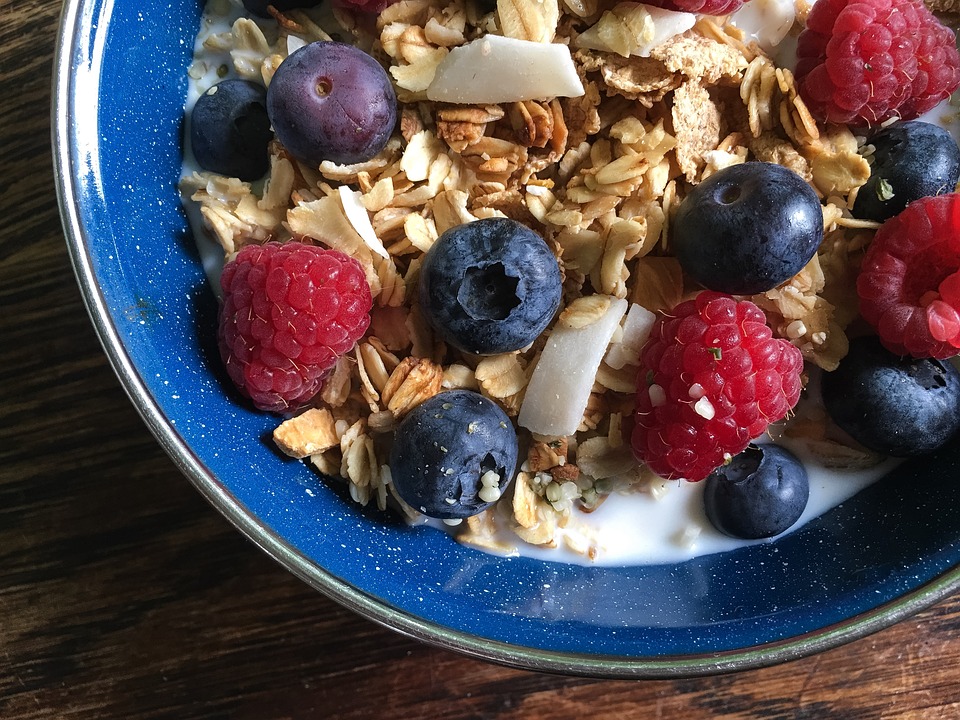 Beta-glucan fibre is a soluble fibre found in a number of cereal grains including oats and barley. It has been suggested that β-glucan fibre is responsible for many of the health effects associated with consumption of these cereal grains. In particular β-glucan fibre may have a significant ability to lower plasma total and low density lipoprotein cholesterol level in humans, particularly those with the metabolic syndrome. However, it is suspected that the response to the cholesterol lowering effects of β-glucan fibre may differ between individuals. For example, in one study, researchers fed 30 individuals a breakfast containing barley either 3 g high molecular weight β-glucan fibre per day, 5 g low molecular weight β-glucan fibre per day, or 3 g low molecular weight β-glucan fibre per day for 5 wk. The design of this study reflected the fact that rather than being a single substance, β-glucan fibre refers to a number of compounds that have slightly varying physical and chemical properties based on their molecular masses.
Beta-glucan fibre is a soluble fibre found in a number of cereal grains including oats and barley. It has been suggested that β-glucan fibre is responsible for many of the health effects associated with consumption of these cereal grains. In particular β-glucan fibre may have a significant ability to lower plasma total and low density lipoprotein cholesterol level in humans, particularly those with the metabolic syndrome. However, it is suspected that the response to the cholesterol lowering effects of β-glucan fibre may differ between individuals. For example, in one study, researchers fed 30 individuals a breakfast containing barley either 3 g high molecular weight β-glucan fibre per day, 5 g low molecular weight β-glucan fibre per day, or 3 g low molecular weight β-glucan fibre per day for 5 wk. The design of this study reflected the fact that rather than being a single substance, β-glucan fibre refers to a number of compounds that have slightly varying physical and chemical properties based on their molecular masses.

The consumption of β-glucan fibre fibre may cause significant reductions in plasma levels of cholesterol. The exact reason for this is not clear, but a number of mechanisms have been proposed. Firstly, the soluble nature of the fibre may decrease the rate that starch and sugars are absorbed from the gut, and this may have an insulin sensitising effect. Improvements in the insulin system are associated with a reduction in the levels of plasma cholesterol. Secondly, β-glucan fibre may be fermented in the colon, and the resulting short chain fatty acids absorbed. These fatty acids may have direct effects to lower cholesterol synthesis rates in the the liver. Thirdly, the β-glucan fibre my increase the excretion of bile acids, which are in turn synthesised from cholesterol, thus acting as a reservoir for the removal of cholesterol from the body. What is clear is that the response to β-glucan fibre is greatest in those individuals that have the highest levels of total cholesterol. For example in the study cited here, the individuals were mildly hypercholesterolaemic with total cholesterol levels between 5.0 and 8.0 mmol/L and LDL cholesterol between 2.7 and 5.0 mmol/L. It is likely that these individuals would respond to consumption of β-glucan fibre in a much more noticeable and measurable way compared to those with cholesterol levels in the normal range. Therefore it is unlikely that β-glucan fibre would lower plasma cholesterol levels in those with good health.
The results of the study showed that consumption of 3 g of high molecular weight β-glucan fibre per day caused a reduction in total cholesterol of -0.12 mmol/L compared with a control diet containing no β-glucan fibre. However, the low molecular weight β-glucan fibre had no effect on total cholesterol levels compared to the control. Interestingly, the authors found that the effect of high molecular weight β-glucan fibre was modified by the genetic individuality of the subject, whereby individuals with a particular type of cytochrome P450 (caused in this case the presence of a single nucleotide polymorphisms in the gene coding for that protein) had a greater reduction in total cholesterol in response to the 3 grams of high molecular weight β-glucan fibre compared to those without the presence of this gene. Therefore biochemical individuality might play a significant role in the response that a person experiences from a particular food, and this is often difficult to predict without genetic screening.
Eat Well, Stay Healthy, Protect Yourself
RdB
